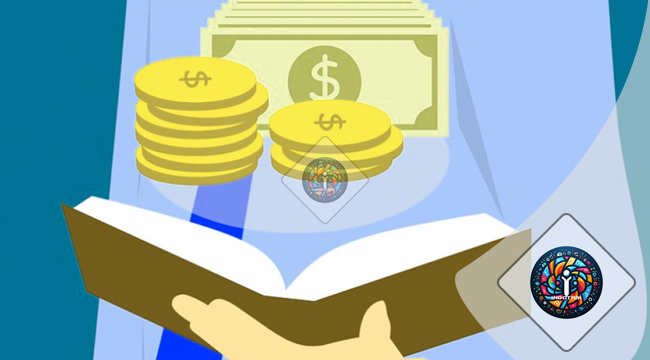
When I first started adulting, the concept of a “good credit score” felt like an elusive secret. Was it 600? 700? A magical 850? All I knew was that having a “good” one was important, yet nobody explained why. If you’re in the same boat, let me be your guide through this world of numbers, lenders, and financial perks. Spoiler: a good credit score can open doors you didn’t even know existed.
What Is a Credit Score, Anyway?
Your credit score is like your financial reputation. It’s a number that tells lenders how likely you are to pay back borrowed money. Ranging from 300 to 850, it’s calculated based on your credit history and habits.
Quick Breakdown of Credit Score Ranges:
- 300–579: Poor
- 580–669: Fair
- 670–739: Good
- 740–799: Very Good
- 800–850: Excellent
Most lenders consider anything above 670 as “good.” But if you’re aiming for premium perks, like the lowest loan rates or fancy credit card rewards, a score above 740 is where the magic happens.
Why Does a Good Credit Score Matter?
Having a good credit score isn’t just about bragging rights—it can save you money and make life easier. Here’s how:
- Lower Interest Rates: Lenders offer better rates to borrowers with strong scores.
- Higher Loan Approvals: Need a mortgage or car loan? A good score improves your chances.
- Better Credit Card Perks: High scores unlock cards with travel rewards, cashback, and low fees.
- Rental Opportunities: Landlords often check credit scores to screen tenants.
- Job Prospects: Some employers consider credit reports during the hiring process.
When I applied for my first car loan, my credit score was in the “fair” range. The interest rate I got was a real wake-up call—it added thousands to the total cost. That’s when I decided to level up my credit game.
What Makes Up a Credit Score?
To improve your credit score, you need to understand what’s behind the curtain. Your score is based on several factors:
1. Payment History (35%): Paying bills on time is the biggest factor. Even one late payment can hurt your score.
2. Credit Utilization (30%): This is the percentage of your available credit that you’re using. Aim to keep it under 30%.
3. Credit History Length (15%): Older accounts show stability, so think twice before closing that decade-old credit card.
4. Credit Mix (10%): A variety of credit types—like credit cards, loans, and mortgages—can boost your score.
5. New Credit (10%): Opening too many accounts in a short time can make you look risky.
When I learned these factors, I realized my high credit card balances were dragging me down. By paying them off strategically, I saw my score rise within months.
How Can You Check Your Credit Score?
Knowing your credit score is the first step toward improvement. Here are a few ways to check it:
- Free Credit Reports: Websites like AnnualCreditReport.com let you access your credit reports from Equifax, Experian, and TransUnion.
- Banking Apps: Many banks and credit card companies now offer free credit score tracking.
- Third-Party Apps: Services like Credit Karma provide free scores and tips for improvement.
I use my bank’s app to track my score monthly. Seeing those incremental increases feels like hitting milestones in a video game—it’s oddly satisfying.
Tips to Achieve and Maintain a Good Credit Score
If your credit score isn’t where you’d like it to be, don’t worry—it’s fixable. Here’s how:
1. Pay On Time, Every Time
Late payments are a big no-no. Automate your bills or set reminders to ensure you never miss a due date.
2. Keep Credit Card Balances Low
Aim for a credit utilization rate below 30%. For example, if your card limit is $10,000, try to keep your balance under $3,000.
3. Don’t Close Old Accounts
Unless they come with high fees, keep those old accounts open. They contribute to your credit history length.
4. Limit Hard Inquiries
Only apply for credit when necessary. Too many hard inquiries in a short period can lower your score.
5. Monitor for Errors
Mistakes happen. Regularly check your credit report for errors, and dispute any inaccuracies immediately.
When I made these changes, it felt like giving my finances a fresh coat of paint. The results? A credit score that finally landed in the “good” zone.
What to Avoid When Building Your Credit Score
Just as there are best practices, there are also pitfalls to avoid:
- Maxing Out Cards: High balances signal risk to lenders.
- Ignoring Small Debts: Even a tiny unpaid bill can tank your score.
- Applying for Multiple Cards at Once: Space out your credit applications.
- Falling for Quick Fixes: There’s no shortcut to good credit. Steer clear of “credit repair” scams.
Common Myths About Good Credit Scores
Myth 1: You need to carry a balance to build credit.
Reality: Paying off your balance in full each month is better for your score and wallet.
Myth 2: Checking your score lowers it.
Reality: Checking your own score is a soft inquiry and doesn’t affect your credit.
Myth 3: Closing unused cards helps your score.
Reality: Closing accounts can hurt your credit utilization and history length.
When I first started, I fell for Myth 1 and paid unnecessary interest. Don’t be me—learn the facts early!
Why Good Credit Scores Are More Important Than Ever
In today’s world, your credit score impacts more than just loans. From renting apartments to setting up utilities, your score is like a VIP pass to financial opportunities.
But remember, it’s not about chasing a perfect score. Anything above 740 is usually enough to unlock the best rates and rewards.
Closing Thoughts:
A good credit score isn’t just a number—it’s a tool that empowers you to make better financial decisions. Whether you’re just starting or looking to improve, understanding the basics can set you on the right path.
Take it from someone who’s been through the highs and lows of credit management: it’s worth the effort. So, what’s your next step? Check your score, make a plan, and watch your financial future brighten. You’ve got this!





